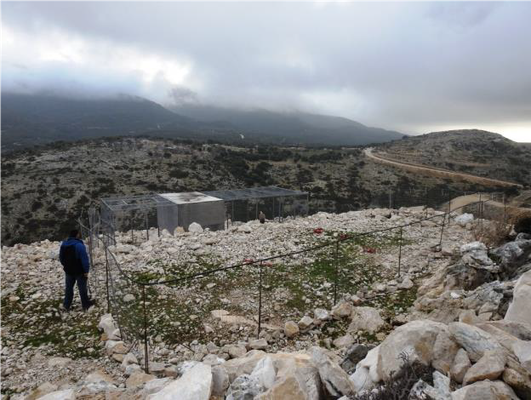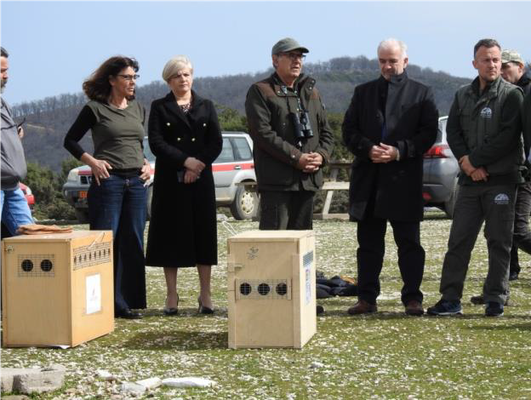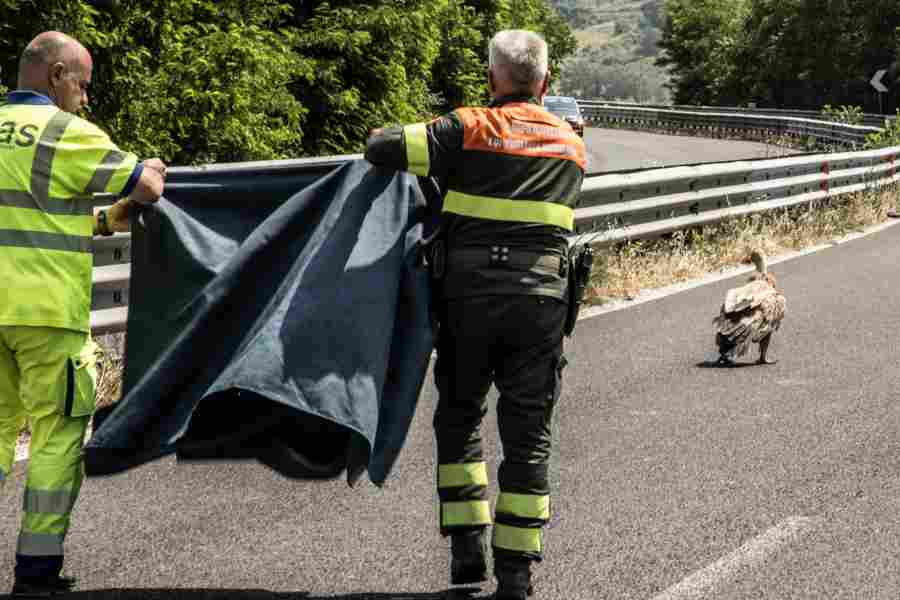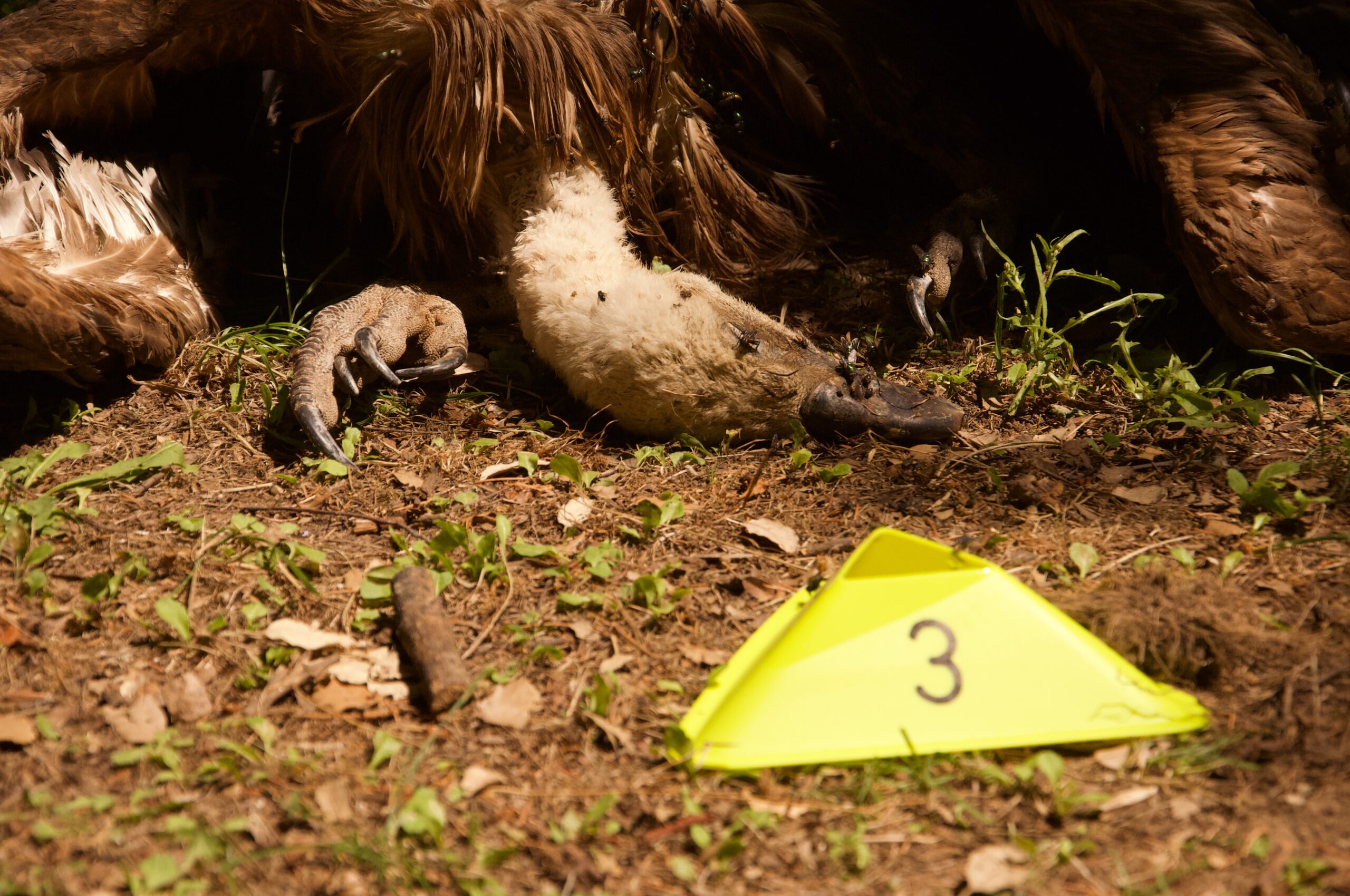
Illegal wildlife poisoning resulted in the plight of the Griffon Vulture population in mainland Greece, wiping out breeding colonies and threatening the remaining ones. To prevent the extinction of the species in the country, conservationists are now tackling the threat head on with a new project.
Griffon Vultures in Greece
The Griffon Vulture population in Greece has suffered a severe decline in recent decades in terms of population size and distribution. The current population of Griffon Vultures in mainland Greece barely exceeds 30 pairs in five colonies spread across western and north-eastern parts of the country. The species has experienced a steep population decline in the country since the 1940s. In the 1980s, the population of the species was estimated at 400-450 breeding pairs with about 200 of them occurring in Crete. The plight of the Griffon Vulture continued at the turn of the 21st century, with several colonies having been wiped out in the last decade, such as Kalamas Gorge, Pineios Gorge, the Valtou Mountains and Nestos Gorge, undoubtedly due to the illegal practice of wildlife poisoning. Etoloakarnania is one of only four areas in Greece where Griffon Vultures have remained and reproduce, and hosts the second largest population of the species nationally, after Crete. The colony of the Acarnanic Mountains as well as the colony of Arakinthos, which are protected areas under the territorial jurisdiction and supervision of the Management Body of Messolonghi lagoon – Akarnanian Mountains, are their living space and are currently the only sustainable ones in the region of Western Greece.
Poisoning causing the plight of vultures in Greece
The plight of the Griffon Vulture continued at the turn of the 21st century, with several colonies having been wiped out in the last decade, such as Kalamas Gorge, Pineios Gorge, the Valtou Mountains and Nestos Gorge, undoubtedly due to mass poisoning incidents. The dramatic population decline has unfortunately been confirmed after the recent serious and larger case of poisoning in the country that ever happened. After that case of 2012 in the Straits of Nestos, on 12 February 2020, another massive poisoning was recorded in the area, with 11 Griffon Vultures found as victims, of which 9 were found dead in Arakinthos and 2 that survived were treated and returned to the area for release.
Tackling poisoning in Greece
With the support of the Balkan Anti-Poisoning Project (BAPP) – Small Grants Programme, our partners from the Hellenic Society for Protection of Nature have in close cooperation with the Management Body of Messolonghi lagoon – Akarnania Mountain built an experimental aviary unit, as an infrastructure of reception, care, acclimatization and rehabilitation of Griffon Vultures and other scavengers. The aviary was constructed at the “Hephaestus” quarry on Mount Arakinthos. Within the framework of this programme, a fenced area, directly adjacent to the cage, was also created for provision of safe food for the vultures, while achieving the prevention of the entry of wild animals.
The two Griffon Vultures that recovered from the previously mentioned poisoning incident, named Fotios and Giannis were fitted with satellite transmitters and were released back to the wild in March. The tagged birds will be monitored in real-time, and their movement and behaviour analyzed towards making a decisive contribution to the early detection of illegal use of poisoned baits in order to reduce losses from this illegal activity. In addition, the operation of the existing cage and the experimental cage-trap is characterized as particularly effective in assisting and recovering the local and wider population of these scavengers. We wish Fotios and Giannis all the best in their future travels, and together we will keep a sharp eye for any future potential poisoning incidents.


The Balkan Anti-Poisoning Project Small Grants Programme
The Balkan Anti-Poisoning Project Small Grants Programme is the first time we at the Vulture Conservation Foundation have run a grant programme, and with this we aim to reinforce national capacities within relevant governmental authorities and conservation NGOs from six countries (Albania, Bosnia and Herzegovina, Croatia, Greece, North Macedonia and Serbia) of the Balkan Peninsula. This work will support those organisations to improve the skills and capabilities in the detection and mitigation of poisoning incidents through the implementation of previously developed National Roadmaps and Strategies. More specifically, through these small grants we endeavor to secure the implementation of priority anti-poisoning actions listed in the National Anti-Poisoning Road-maps/Strategies, strengthen the capacities of relevant national governmental institutions in combating the illegal use of poison baits, improve the enforcement of relevant legislation and attract other funding opportunities for implementation of large-scale anti-poisoning projects in the region. Through the support of the MAVA Foundation, we managed to dedicate a budget of €60.000 for these small grants.
Balkan Anti-Poisoning Project

The Balkan Anti-Poisoning Project is a cross-border initiative bringing together wildlife conservation organisations, governmental agencies and other stakeholder such as; hunting associations, farmers and scientists, in six Balkan countries to tackle illegal wildlife poisoning.
Funded by the Mava Foundation we aim to secure real and continued engagement of the relevant national governmental authorities in the Balkan region against illegal wildlife poisoning and increase their capacity to counteract it and working together to take positive steps to protect vultures.
The Balkan Anti-Poisoning Project is a partnership between us here at the Vulture Conservation Foundation and the Albanian Ornithological Society-AOS, Protection and Preservation of Natural Environment in Albania-PPNEA, Ornithological Society “Naše ptice”,Association BIOM, Hellenic Ornithological Society-HOS, Macedonian Ecological Society-MES, Društvo za zaštitu i proučavanje ptica Srbije.
The Balkan Anti-Poisoning Project also contributes directly into the implementation of the Vulture Multi-Species Action Plan by carrying out anti-poisoning actions in Albania, Bosnia and Herzegovina, Croatia, Greece, North Macedonia and Serbia, and is building on our work for the last decade in the Balkans through the Balkan Vulture Action Plan.








